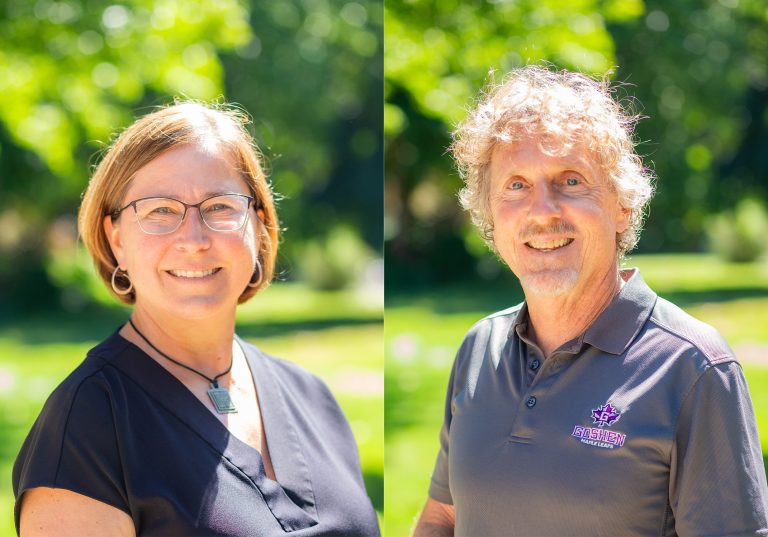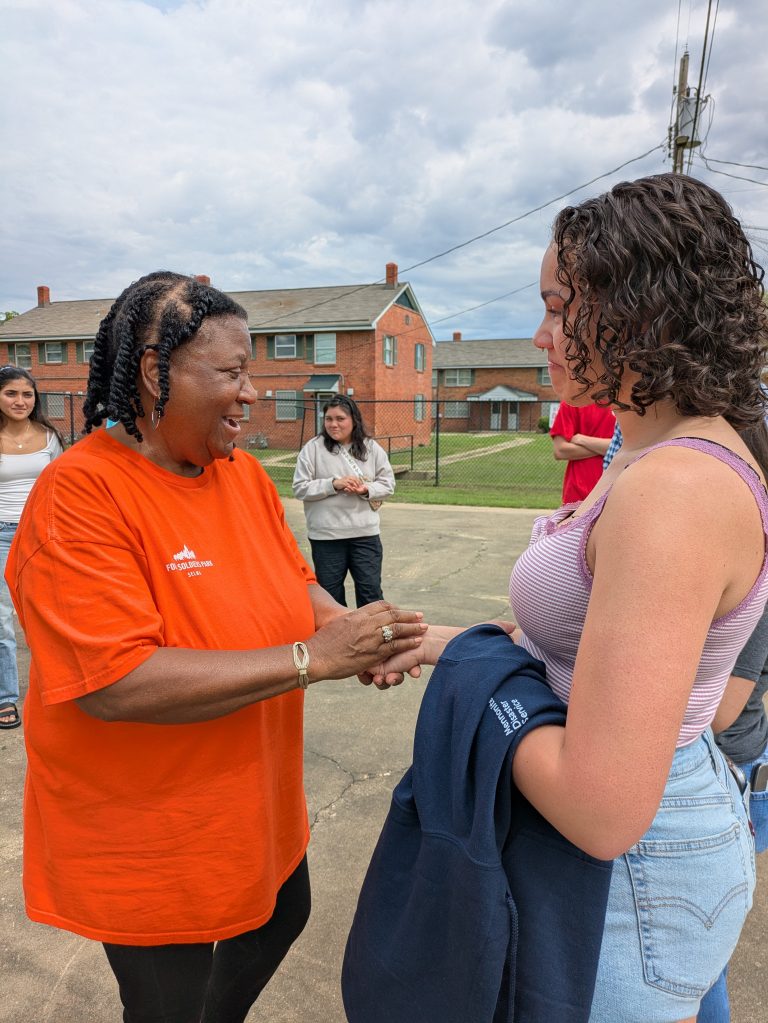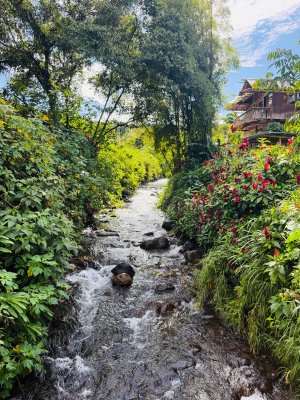Goshen College’s “SST for all” makes global education more accessible with flexible study options at home and abroad.
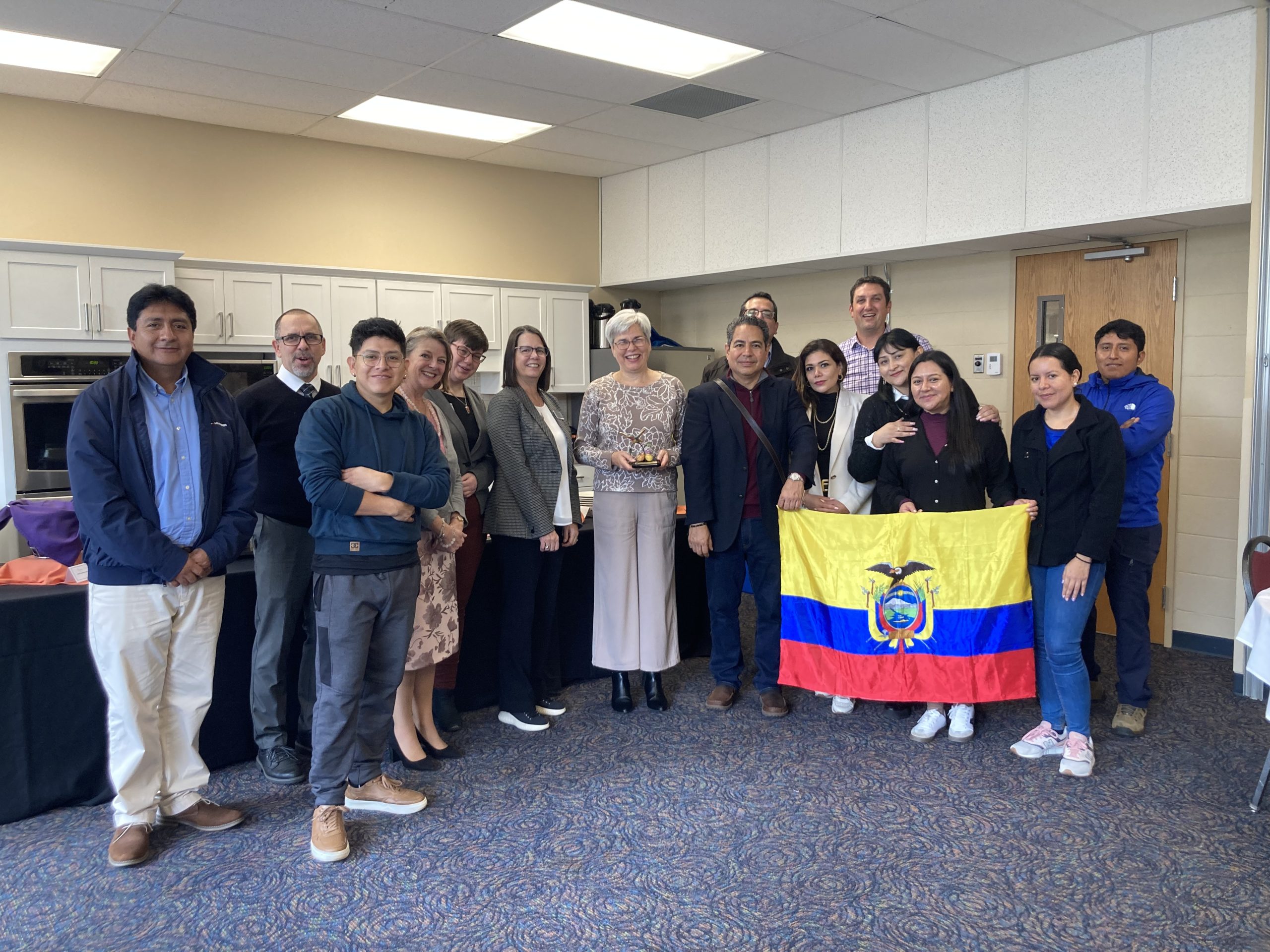
News
Nurturing Reciprocity in SST Relationships
Aug 29 2025
This piece was written by Jennifer Schrock, administrative assistant for Study-Service Term, as part of the Global Engagement office’s “Global Connections” SST newsletter.
For more than five decades, Goshen College students and faculty have traveled around the globe to experience international education and connect with people from other cultures. They have been welcomed by thousands of people — families, coordinators, organizations and community leaders.
As recipients of this overwhelming hospitality, we at GC long to be able to offer equitable benefits in return. When they began their roles as co-directors of the Global Engagement Office. Jerrell Ross Richer and Kendra Yoder named reciprocity as one of their priorities. Two highlights from the 2024-25 school year include hosting SST partners from Ecuador and investing in renewable energy projects with Ecuadorian partners.
Pathways to Partnership
SST hosts in other countries often ask when they can come and visit our campus, our community and our families. Visa requirements, economic disparities, and travel logistics make this challenging. But when these barriers can be removed, even for a short time, we are delighted to welcome our hosts and partners as they have welcomed us.
In November 2024, Goshen College hosted a delegation of professors, administrators and students from Rumiñahui Technological University, an SST partner organization in Quito, Ecuador.
Building on relationships that Ross Richer, Ecuador Country Coordinator Kléver Guevara, and indigenous Cofán students developed, the university received our summer 2024 SST unit with lavish hospitality. SST leaders Cristóbal Garza González and Tillie Yoder, were treated to cultural performances, regional cuisine and language practice with Ecuadorian students. Later, two students spent six weeks of service at the university, assisting in English language classes. This led to conversation about sending a delegation from Rumiñahui to Goshen.
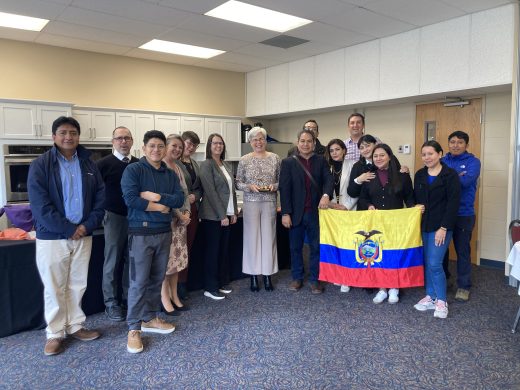
Faculty, administrators and students from Rumiñahui Technical University visiting with Ecuador SST leaders, President Rebecca Stoltzfus and members of her Cabinet.
Eight guests spent a week at Goshen College learning about our programs. They stayed with families from Waterford Mennonite Church and Goshen College and navigated language barriers just as our students do. The week included visits to Merry Lea Environmental Learning Center of Goshen College and Anabaptist Mennonite Biblical Seminary; opportunities to interact with students in economics and Spanish classes, lunch with members of the President’s Cabinet, and dinner with community leaders. Planning for and caring for the needs of guests was a humbling reminder of how much behind-the-scenes work SST host families and organizations do on GC students’ behalf.
“Having guests from Rumiñahui allowed us to show reciprocity and solidarity to our Ecuadorian partners and to experience that the best assets of our institutions are the people who make them,” Garza González commented.
We were especially glad that our Ecuador SST country coordinator could be part of the delegation. “It is such a gift to be able to host Kléver and return the hospitality he has shown us and our students over the past six years,” Ross Richer said. Guevara found the visit important because it gave him an opportunity to see where our students come from, to experience campus life and to get to know the surrounding area with the help of former SST leaders and students that he worked with in Ecuador.
The Ecuadorian guests shared from their hearts at a farewell party at the College Cabin the day before their departure. Coming from an urban campus housed in a single building, the Goshen College campus with its large maple trees, sprawling lawns and prairie struck them as calm, safe and beautiful. They were impressed by Merry Lea’s dedication to environmental sustainability and intrigued by the number of Spanish speakers on campus, including some from other countries. All appreciated the warm hospitality of the Indiana residents they met.
In addition to the fellowship with Ecuadorians, Richer enjoyed the local relationship-building that resulted. “Arranging this visit was rewarding and affirming,” Richer said. “It was amazing how many local people, from President Becky Stoltzfus to Mayor Gina Leichty, made time to be with our guests.”
Supporting SST partners through carbon onsets
A second form of reciprocity involves a visionary donor who has provided funding for climate onsets and climate education for each of the SST off-campus classes. Instead of buying offsets for SST travel on the carbon market, GEO has chosen a more personal, relationship-building approach: enable partner organizations to strengthen environmental work in their countries.
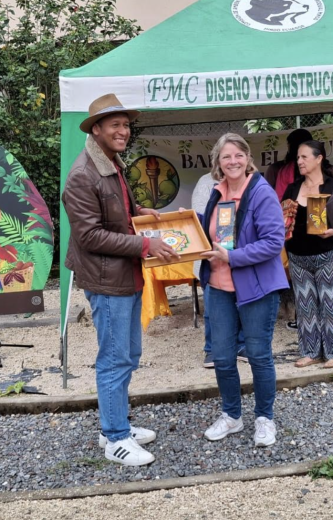
Kléver Guevara, Ecuador country coordinator, and Heidi Dyck Hilty, May-Summer SST faculty, receiving a gift at the children’s park solar celebration.
In the 2024-25 school year, the funds supported two solar projects in locations where our Ecuador SST students have service placements and fieldtrips. Both projects created much-needed light sources for evening activities and for use during blackouts in the electric grid. These are frequent due to climate-induced drought and Ecuador’s reliance on hydroelectric power.
One grant provided solar lighting for a new children’s park in Mindo, a small town located in the Ecuadorian cloud forest. GC students have volunteered in Mindo reforestation projects for the past six years. This was a meaningful gift for local residents because Mindo is a town that typically caters to the needs of tourists; its whole economy is geared toward serving bird watchers and nature lovers who travel here from all over the world. But the public park was a project of the parochial government designed for local children. In Mindo during blackouts, the children’s park shines on.
A second grant funded a small solar system for a community center built by residents of Basquitay, a remote Kichwa village and the birth place of Julian Guamán, one of our lecturers and our Kichwa language instructor. The single panel, inverter and battery system provides local people with the electricity needed to hold meetings in the evenings as well as to charge their phones. The alternative — if affordable — would have been a noisy generator belching exhaust.
The carbon onset funding also enables SST leaders of each travel group to find a national level expert to speak to our students about the impacts of climate change and solutions appropriate to the cultural context. This, too, supports communities by uplifting voices of social change.
The Global Engagement team is deeply grateful for the chance to honor our partners and strengthen our relationships through both hospitality and support for community-level projects. We look forward to additional climate projects in other locations, and reciprocal visits when they can occur.
